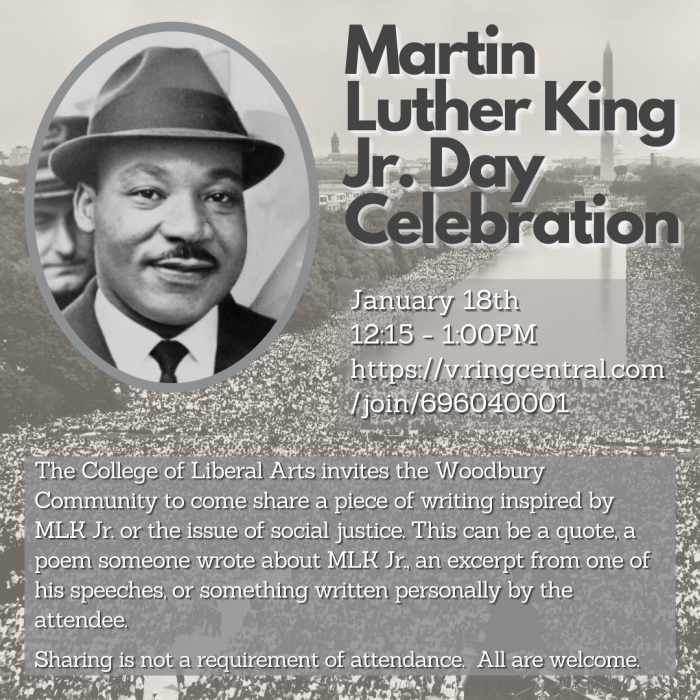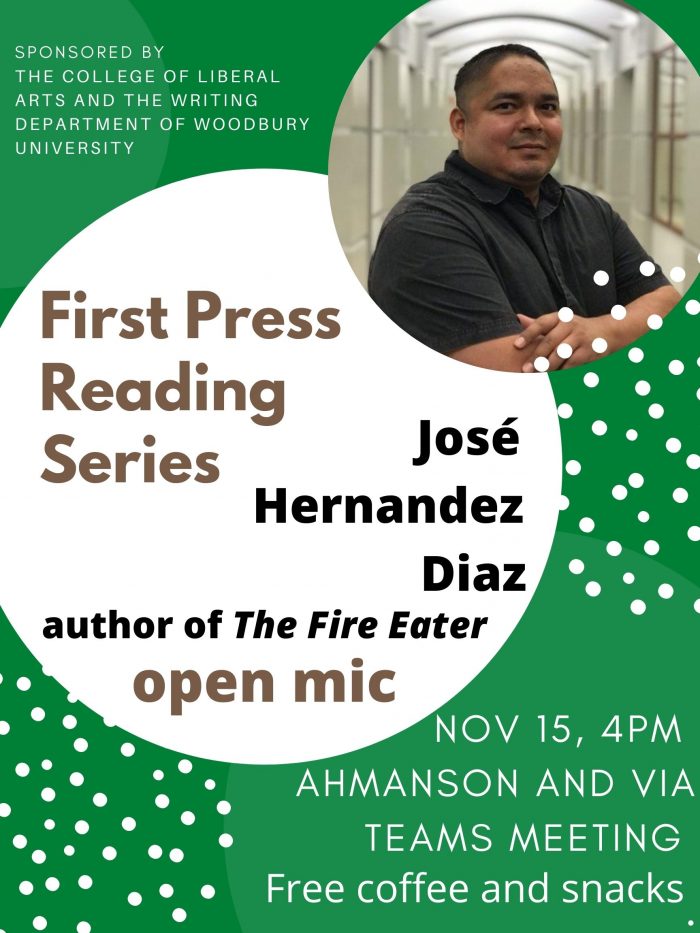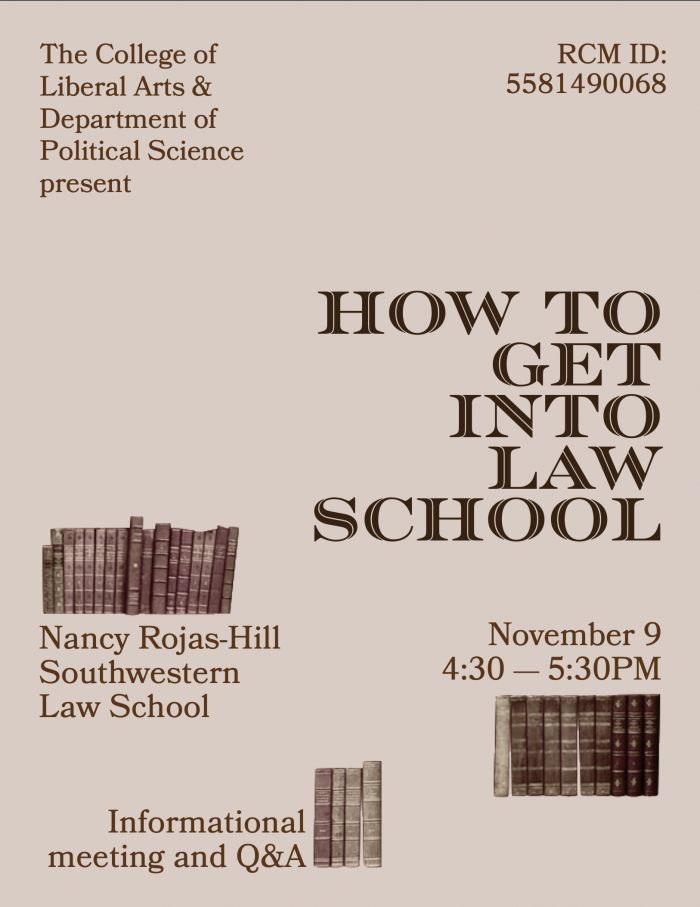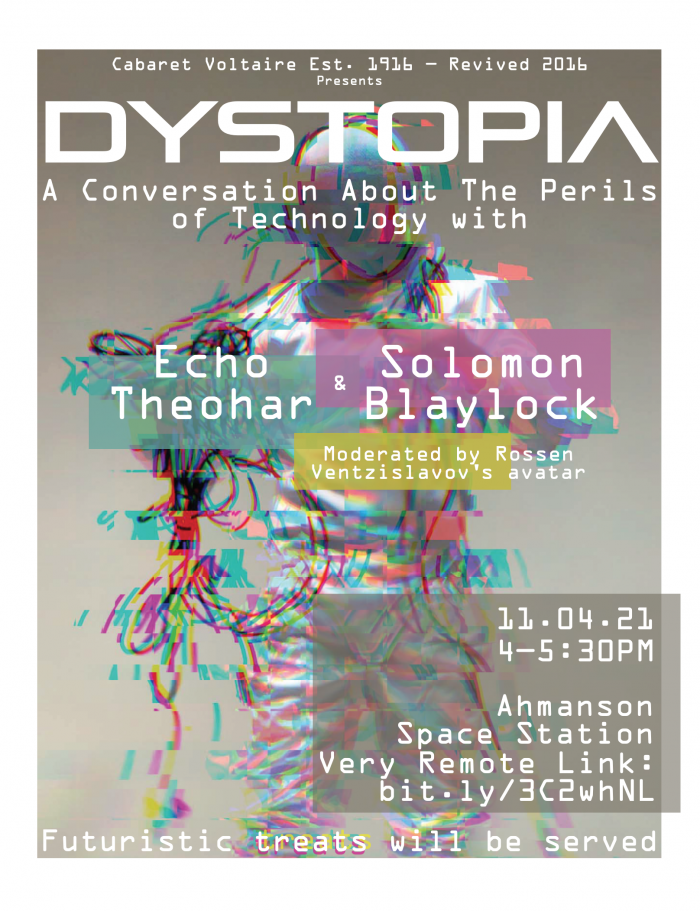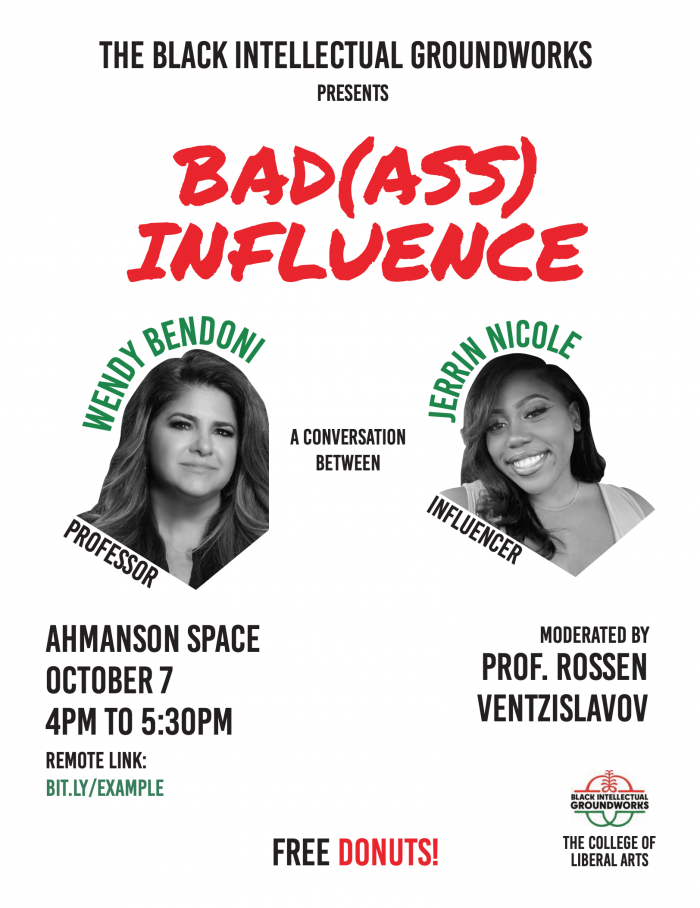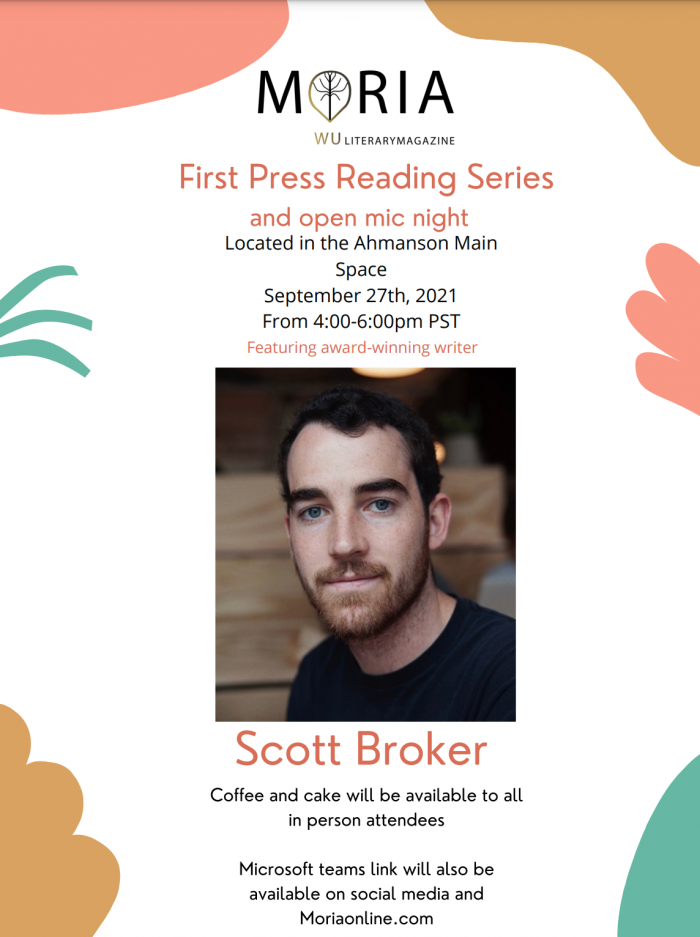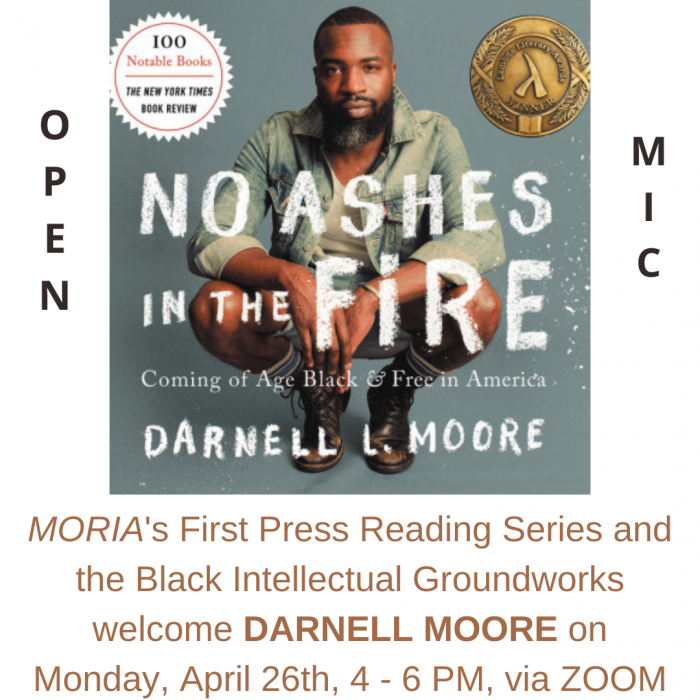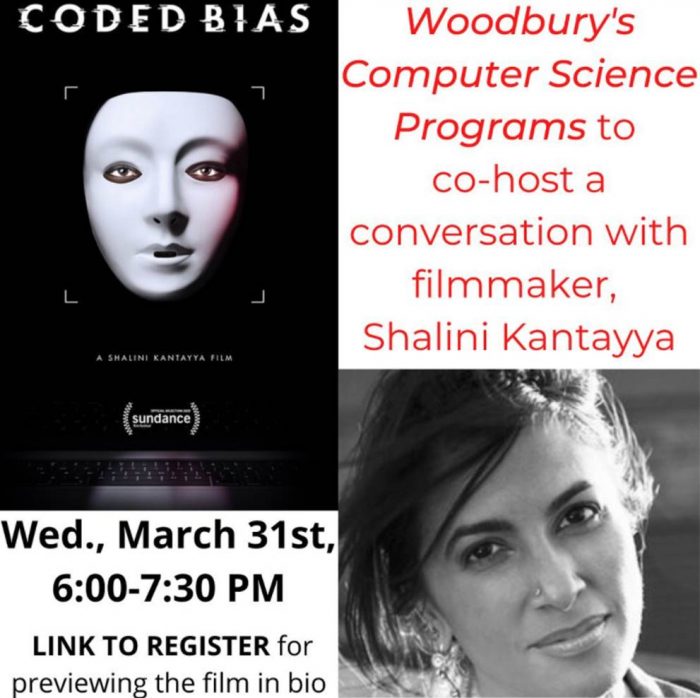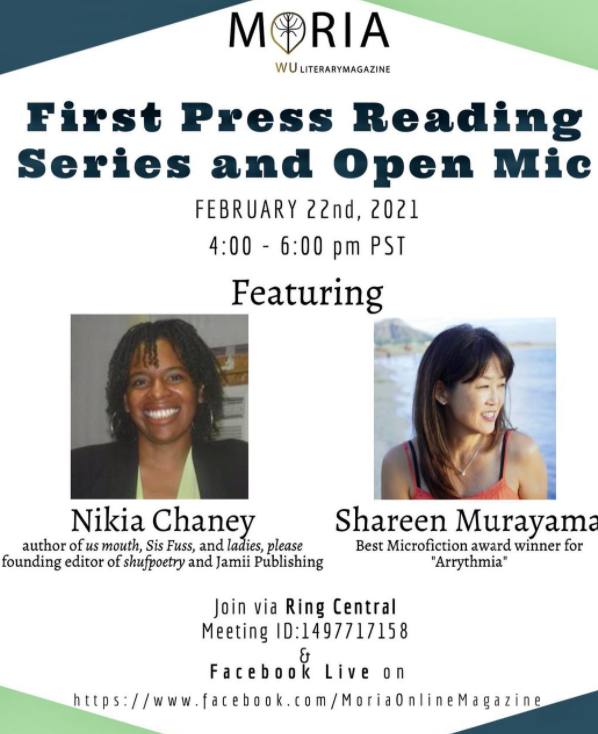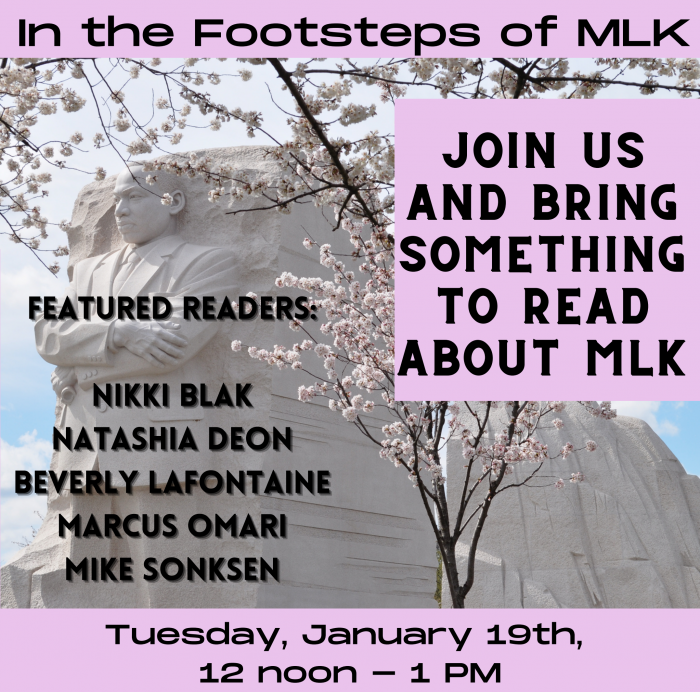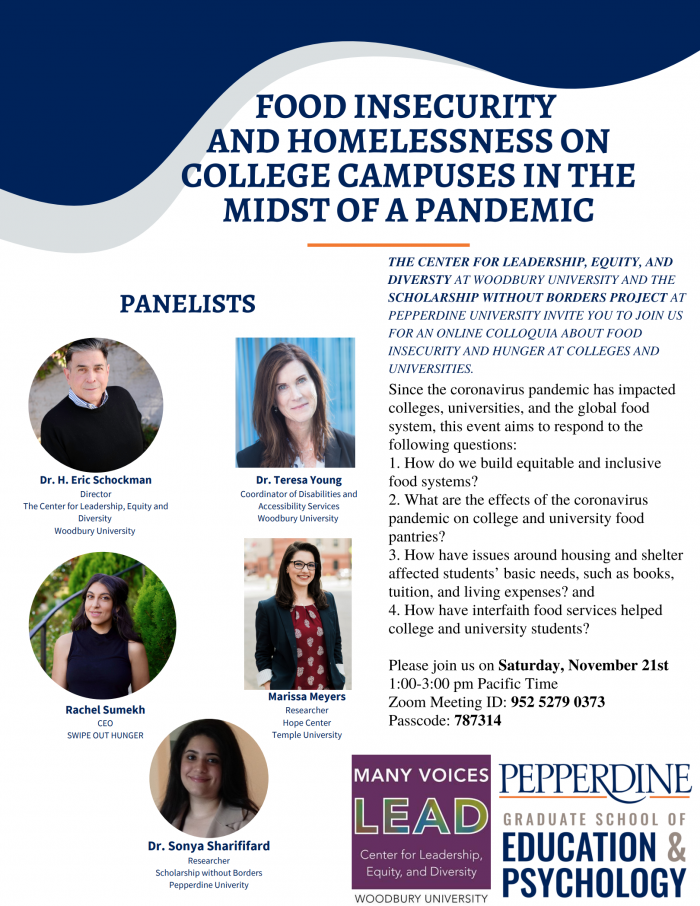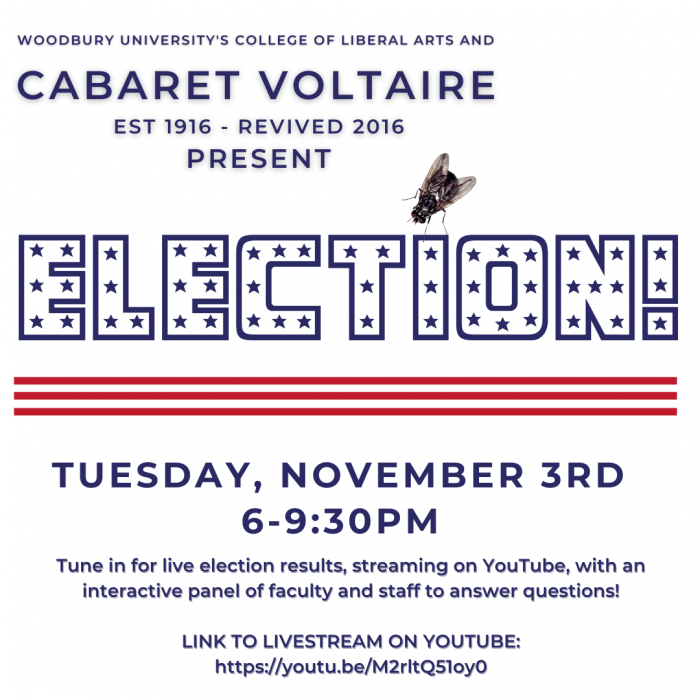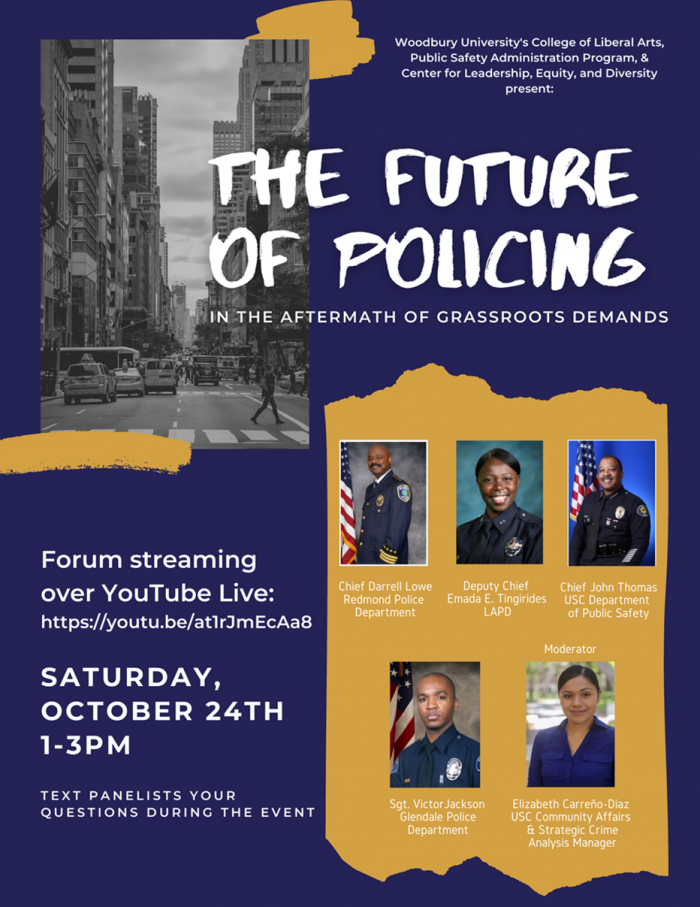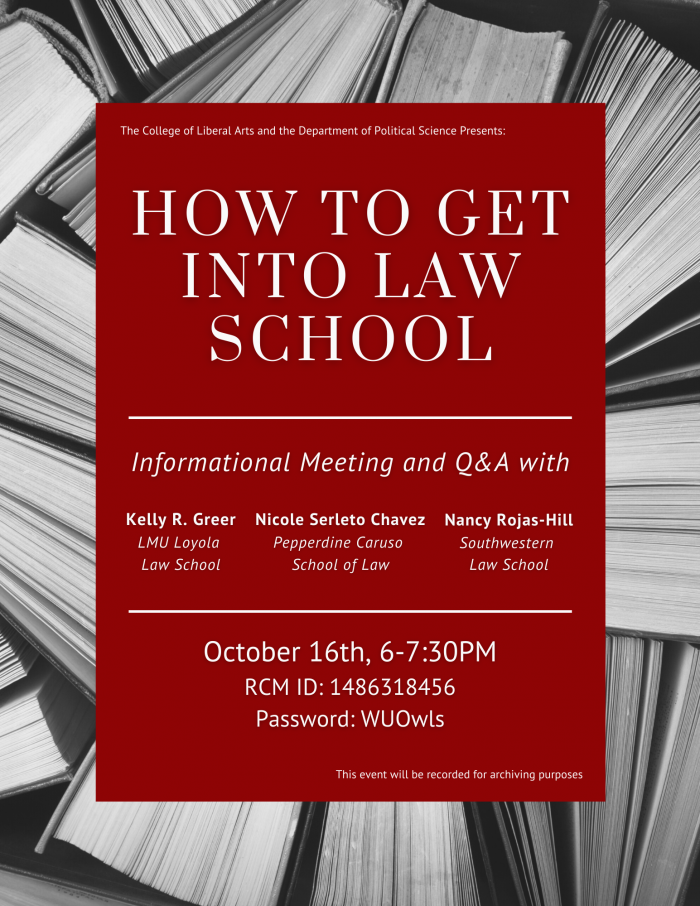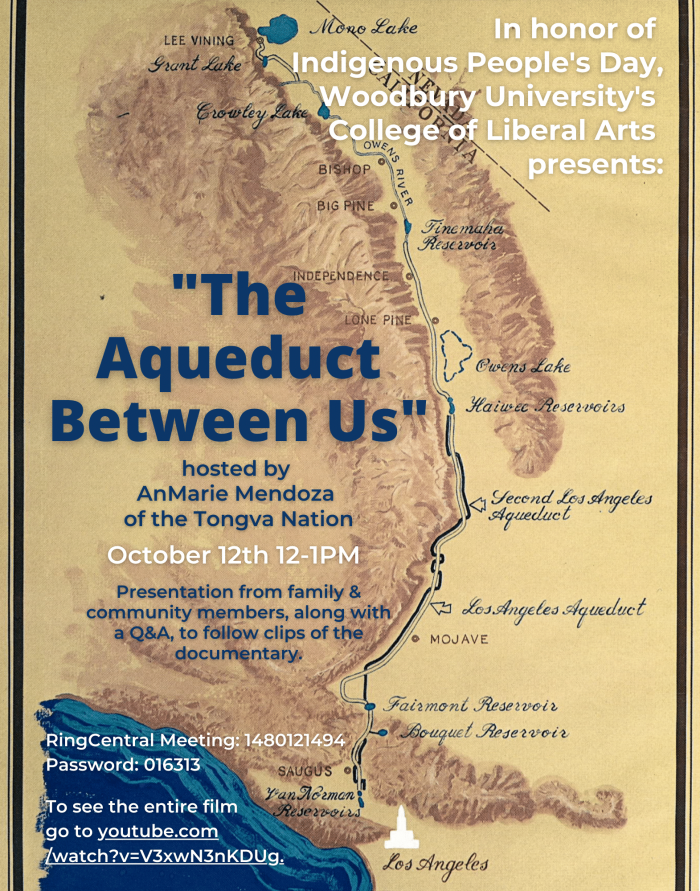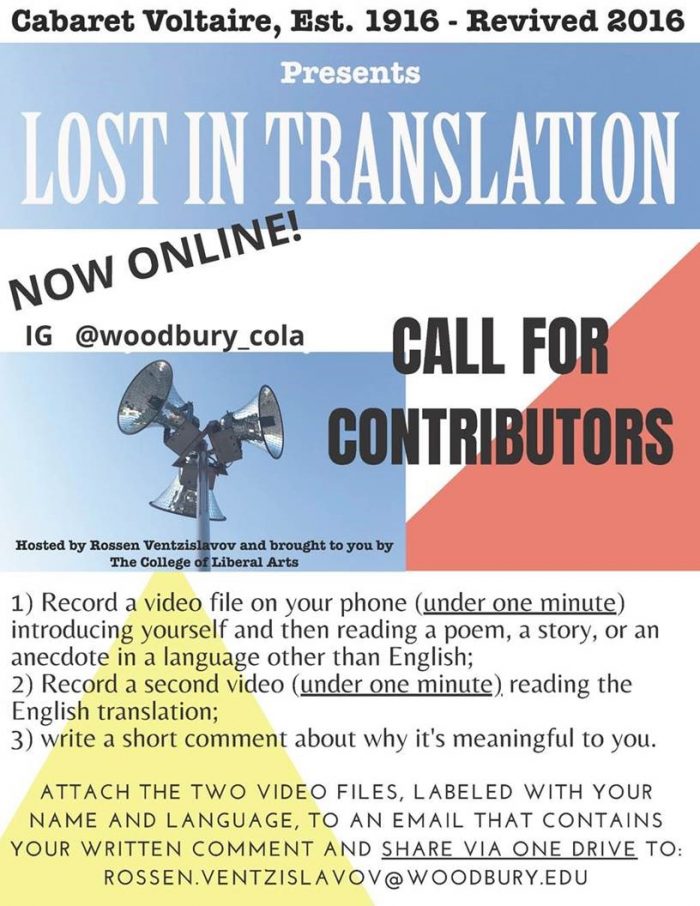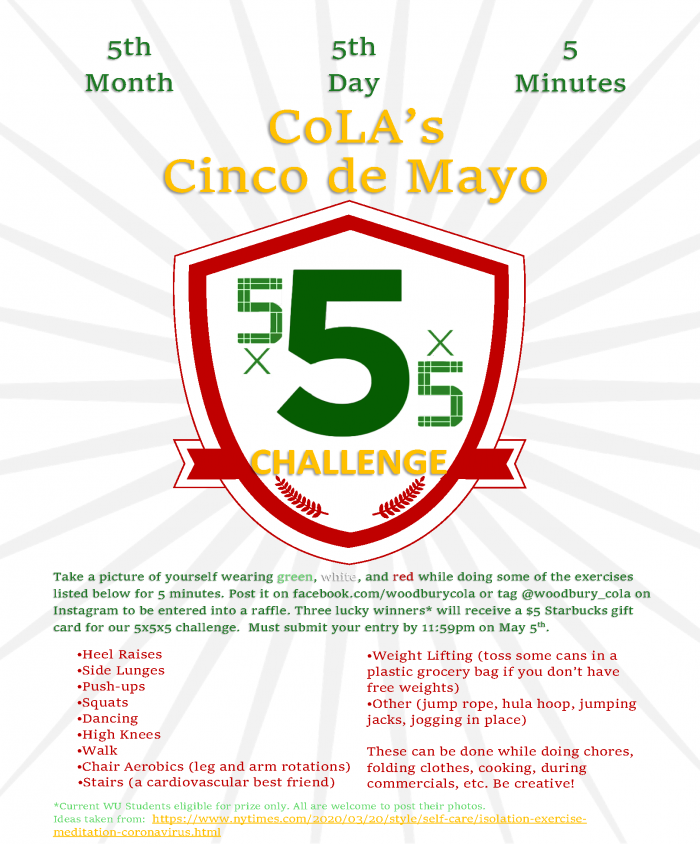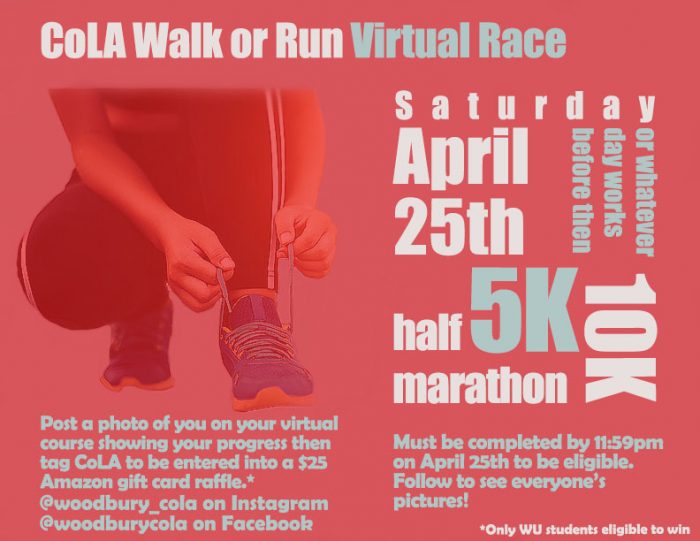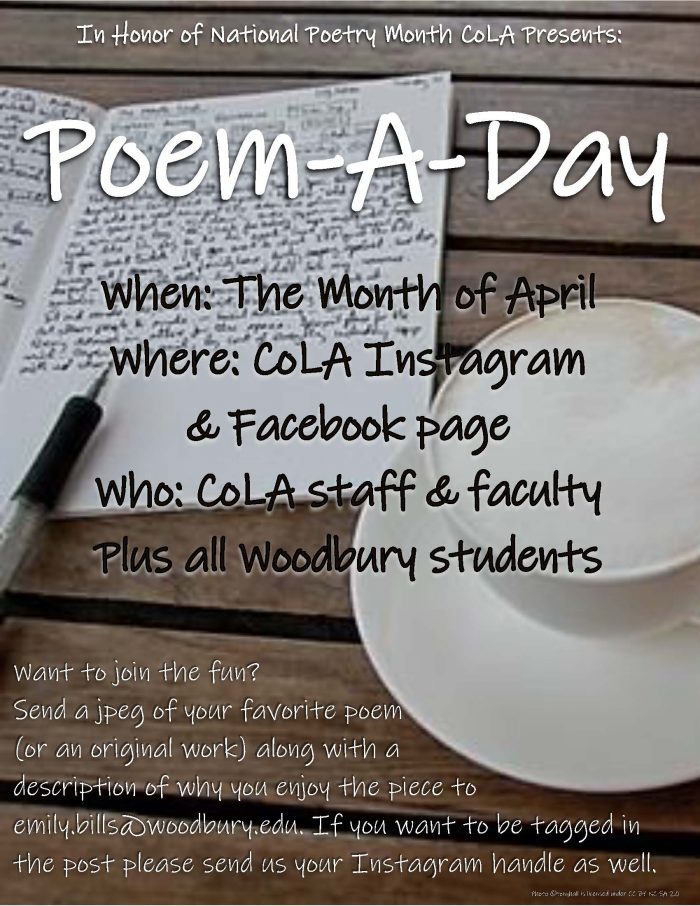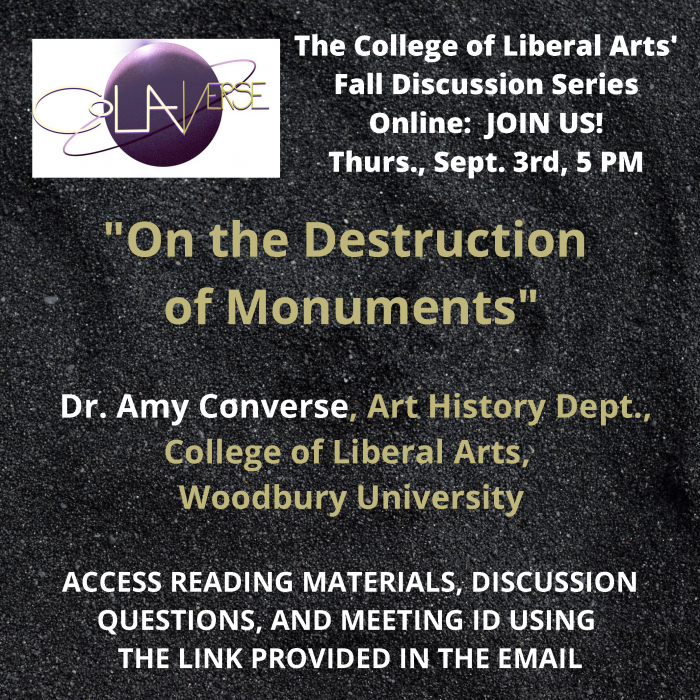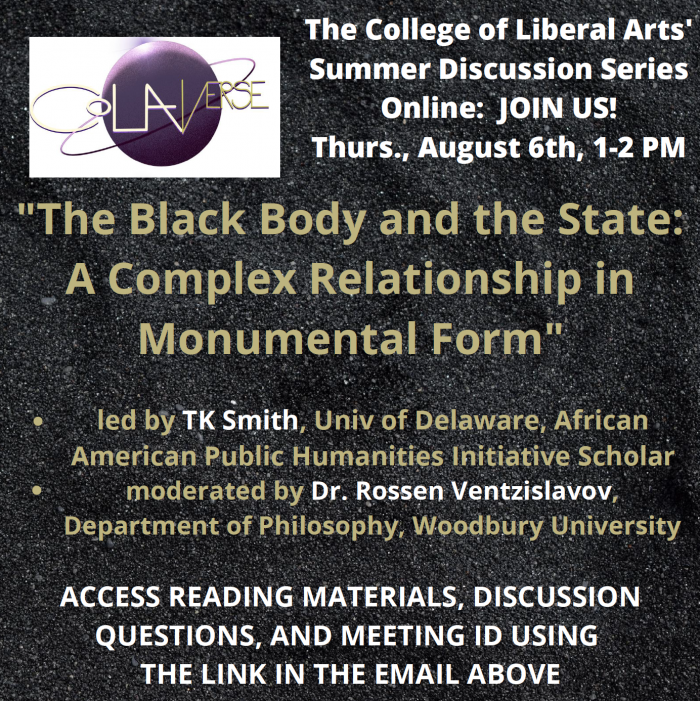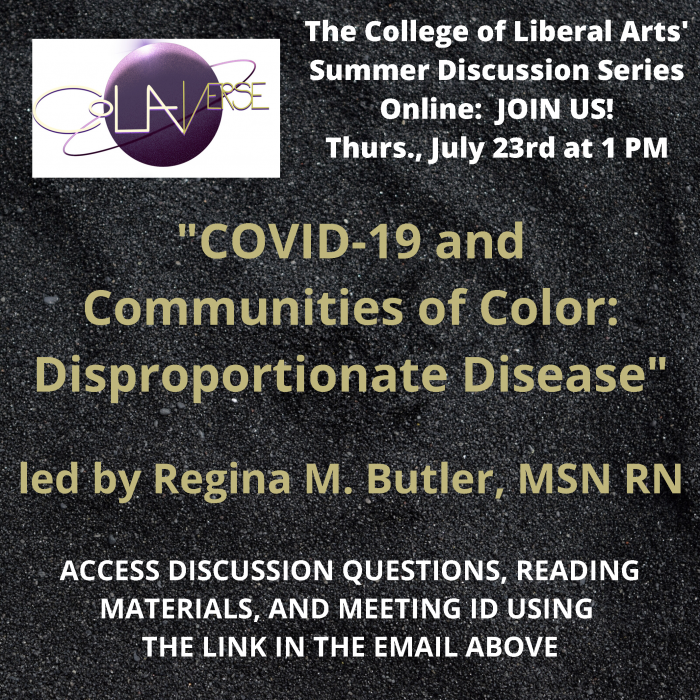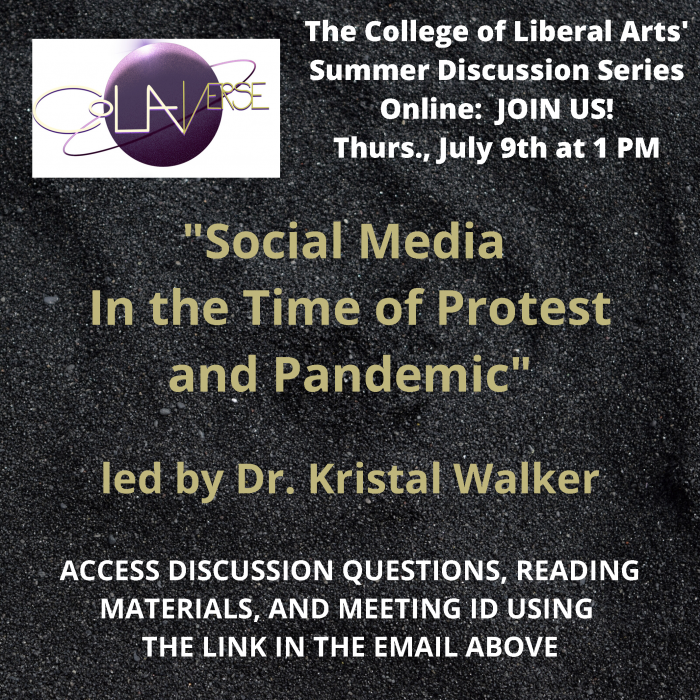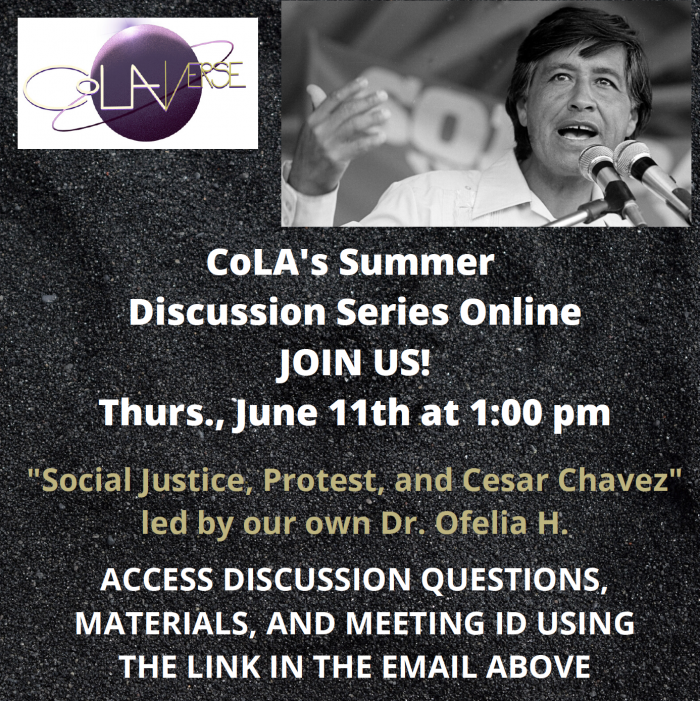Liberal Arts and Sciences
College of Liberal Arts and Sciences Events
CLAS Events
Learn more about past and upcoming events hosted by the College of Liberal Arts and Sciences!
Apply Request Information Take a TourPast Events:
After attending Discover Woodbury on January 30th, we encourage you to sign up and attend one of the following College of Liberal Arts Virtual Workshops. You will have the opportunity to virtually explore your creative potential. Learn about our university, majors, and career path that is the best fit for you!
You will partake in ONE of the following hands-on workshops you select when registering:
- Explore Poetry, Prose, and Performance: Creative Writing
- My Path to Success!: Personal Statement Writing for College Application
- Policing and Mental Health: Public Safety Administration
- Fun with Data Mining: Computer Science Data Analytics
PLEASE NOTE: You must be a junior or a senior in high school to attend these workshops. You may only select ONE workshop when registering.
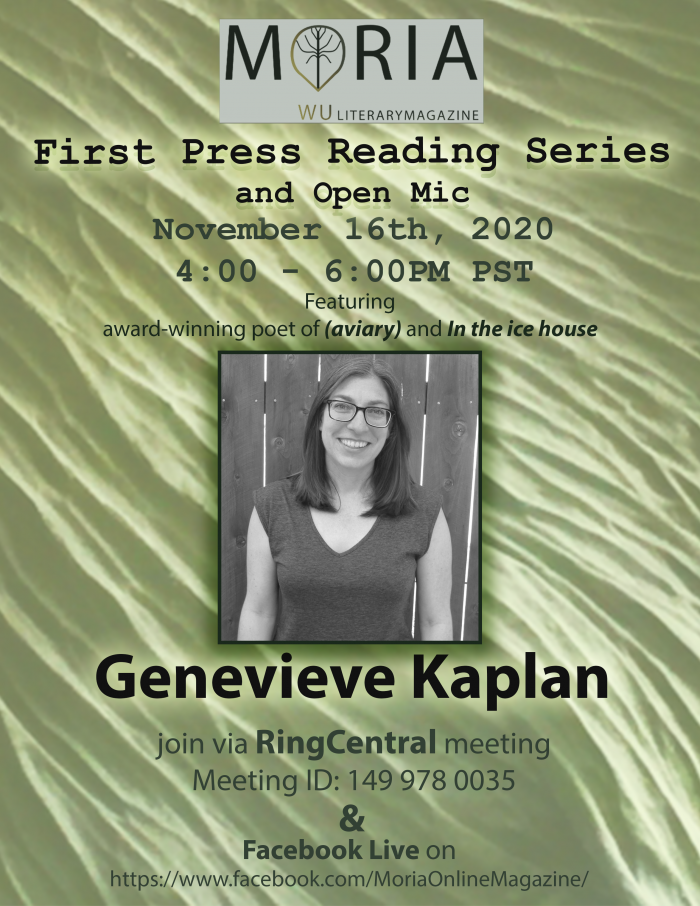
MORIA hosted Genevieve Kaplan as their featured reader; the author of (aviary) (Veliz Books, 2020), In the ice house (Red Hen, 2011), and three chapbooks. She is also the winner of the A Room of Her Own Foundation’s poetry publication prize. Her poems can be found in Third Coast, Spillway, Denver Quarterly, South Dakota Review, Poetry, and other journals. A new chapbook, I exit the hallway and turn right, is forthcoming from above/ground press. Genevieve lives in southern California where she edits the Toad Press International chapbook series, publishing contemporary translations of poetry and prose.
Read more about the latest First Press Reading Series by clicking the button below.
MORIA First Press REading Series
MORIA is a national literary magazine with an all-student editorial board, based at Woodbury University in the hills just north of downtown Los Angeles. We accept poetry, fiction, and creative non-fiction from emerging and established writers in the United States and across the world. The undergraduates who serve as editors and managers of the magazine participate in an official course on campus, during which they learn the fundamentals of producing an online literary journal with a professional focus. We publish twice-a-year, in late spring and in late fall.
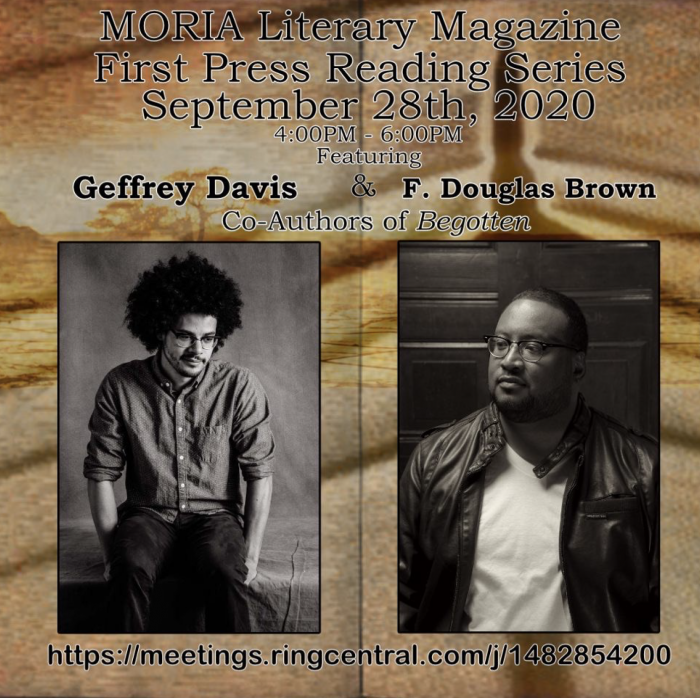
MORIA featured two award-winning poets: F. Douglas Brown and Geffrey Davis! This event was co-sponsored with the Professional Writing Department and the College of Liberal Arts.
F. Douglas Brown and Geffrey Davis co-authored Begotten, a chapbook for the Floodgate Poetry Series. Begotten is an exploration of fatherhood both past and present, discussing the vulnerability of father and son in black American families.
F. Douglas Brown has written two poetry collections: ICON (Writ Large Press, 2018), and Zero to Three (University of Georgia, 2014), which won the Cave Canem Poetry Prize selected by US Poet Laureate, Tracy K. Smith in 2013. Based in LA and a long-time educator, Brown currently teaches English and African American Poetry at Loyola High School of Los Angeles.
Geffrey Davis is the winner of the James Laughlin Award from the Academy of American Poets for his collection Night Angler (BOA Editions, 2019) as well as the A. Poulin, Jr. Poetry Prize for Revising the Storm (BOA Editions, 2014). Davis has also been awarded the Anne Halley Poetry Prize, the Dogwood Prize in Poetry, and the Wabash Prize for Poetry.
Read more about the latest First Press Reading Series by clicking the button below.
MORIA First Press REading Series
MORIA is a national literary magazine with an all-student editorial board, based at Woodbury University in the hills just north of downtown Los Angeles. We accept poetry, fiction, and creative non-fiction from emerging and established writers in the United States and across the world. The undergraduates who serve as editors and managers of the magazine participate in an official course on campus, during which they learn the fundamentals of producing an online literary journal with a professional focus. We publish twice-a-year, in late spring and in late fall.
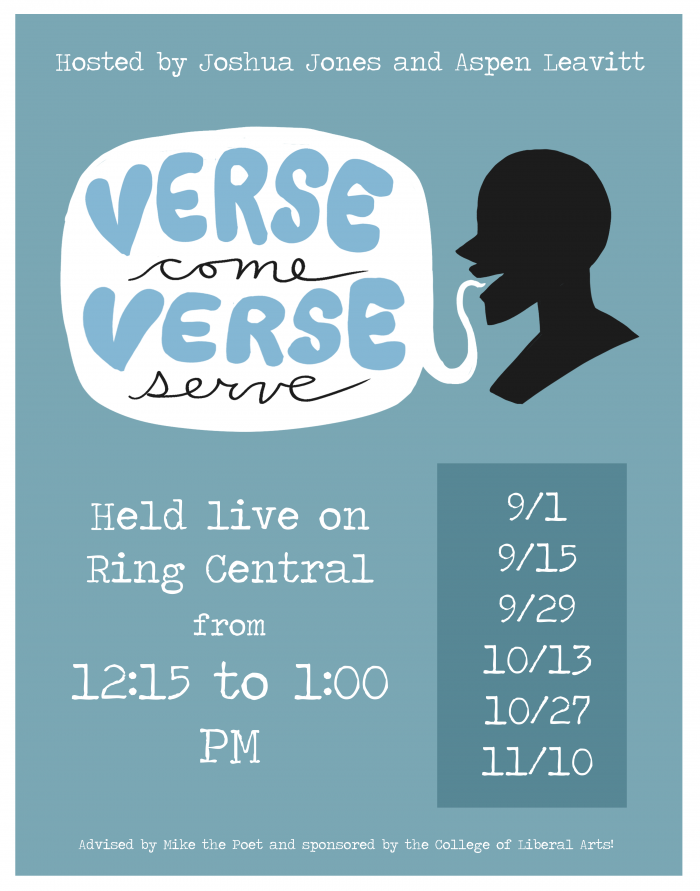
Verse Come Verse Serve is a biweekly, student led, open mic poetry event. Participating Adjunct Mike Sonksen, the faculty advisor says, “I started ‘Verse Come, Verse Serve,’ because Poetry open mics changed my life 20 years ago. They helped me find my voice and identity. I wanted to give students a platform to speak freely.”
https://marshhawkpress.org/lynne-thompson-father-tongue/
The recipient of a Fellowship from the City of Los Angeles in 2015, Lynne Thompson is the author of three poetry chapbooks as well as three full-length collections, Fretwork—winner of the Marsh Hawk Press Poetry Prize—Start With A Small Guitar, and Beg No Pardon, winner of the Perugia Press Book Award and the Great Lakes Colleges New Writers Award. A Pushcart Prize nominee, Thompson’s work has appeared in the North American Review, Prairie Schooner, Pleiades, Colorado Review, and Ecotone, as well as the anthologies, Coiled Serpent, Poets Arising from the Cultural Quakes and Shifts of Los Angeles, and Resisting Arrest: Songs to Stretch the Sky. She is Reviews & Essays Editor for the literary journal Spillway and Chair of the Board of Trustees at Scripps College.
Poetry.LA Interview:
https://www.youtube.com/watch?v=gUuX8Wc6QSc
POEMS:
- https://www.foundryjournal.com/thompson.html
- https://www.poetryfoundation.org/poetrymagazine/poems/118564/the-beauty-shell
- http://www.poetry.us.com/lynnethompson.html
MORIA is a national literary magazine with an all-student editorial board, based at Woodbury University in the hills just north of downtown Los Angeles. We accept poetry, fiction, and creative non-fiction from emerging and established writers in the United States and across the world. The undergraduates who serve as editors and managers of the magazine participate in an official course on campus, during which they learn the fundamentals of producing an online literary journal with a professional focus. We publish twice-a-year, in late spring and in late fall.
http://www.richardgarcia.info/pp/bio.html
Poet and writer Richard Garcia was born in San Francisco and started writing in his teenage years. Since then, he has authored various books of poetry, including The Flying Garcias (1991), Rancho Notorious (2001), The Persistence of Objects (2006), Chickenhead (2009), The Other Odyssey (2012), The Chair (2015)—chosen by Poetry Magazine editor Don Share as the best book of the year—and Porridge (2016), winner of the Press 53 Prize. Praised by Nobel Prize Winner Octavio Paz for his “emotion…verbal economy [and] tone,” Garcia’s recent work with prose poems has also received accolades. The recipient of many prizes and awards, including a fellowship from the National Endowment for the Arts, a Cohen Award from Ploughshares, a Pushcart Prize, and the Georgetown Review Poetry Prize, Garcia’s poems have also appeared in Crazyhorse, Best American Poetry and various anthologies. A former instructor at the College of Charleston, Garcia has also taught creative writing in the Antioch University Los Angeles MFA Program.
http://www.anhingapress.org/loribedikian
Lory Bedikian received her BA from UCLA with an emphasis in Creative Writing and Poetry. During her time at UCLA, she was twice nominated for the Ina Coolbrith Memorial Prize in Poetry. She earned her MFA in Poetry from the University of Oregon, where she received the Dan Kimble First Year Teaching Award for Poetry. Her manuscript has been selected several times as a finalist in both the Crab Orchard Series in Poetry Open Competition and in the Crab Orchard Series in Poetry First Book Award Competition. She has received grants from the Money for Women/Barbara Deming Memorial fund and from AFFMA: Arpa Film Foundation for Music & Art. Her poems have been published in the Connecticut Review, Portland Review, Poetry International, Poet Lore and Heliotrope among other journals and have been included in Blue Arc West: An Anthology of California Poets. Poets & Writers chose her work as a finalist for the 2010 California Writers Exchange Award. Bedikian’s The Book of Lamenting won the 2010 Philip Levine Prize in Poetry. She currently teaches poetry workshops in Los Angeles.
The Los Angeles Review, review of Lory Bedikian’s The Book of Lamenting:
http://losangelesreview.org/book-review-book-lamenting-lory-bedikian/
POEMS:
MORIA is a national literary magazine with an all-student editorial board, based at Woodbury University in the hills just north of downtown Los Angeles. We accept poetry, fiction, and creative non-fiction from emerging and established writers in the United States and across the world. The undergraduates who serve as editors and managers of the magazine participate in an official course on campus, during which they learn the fundamentals of producing an online literary journal with a professional focus. We publish twice-a-year, in late spring and in late fall.
http://douglasmanuelpoetry.com
Douglas Manuel was born in Anderson, Indiana. He received a BA in Creative Writing from Arizona State University and a MFA from Butler University where he was the Managing Editor of Booth a Journal. He is currently a Middleton and Dornsife Fellow at the University of Southern California where he is pursuing a PhD in Literature and Creative Writing. He has served as the Poetry Editor for Gold Line Press as well as one of the Managing Editors of Ricochet Editions. His poems are featured on the Poetry Foundation’s website and have appeared or are forthcoming in Poetry Northwest, The Los Angeles Review, Superstition Review, RHINO, North American Review, The Chattahoochee Review, New Orleans Review, Crab Creek Review, and elsewhere. His first full-length collection of poems, Testify (Red Hen Press, 2017), won the 2017 IBPA Benjamin Franklin Award for poetry. Manuel’s poems explore identity, race, and masculinity. Grounded in autobiography, his first book tracks a speaker struggling between worlds. In an interview with Sofia Bosch, Manuel remarks, “I think the two biggest catalysts of Testify would be my mom’s death when I was 8 and my father’s long prison sentence. I was raised by my auntie … so, I was always kind of straddling those two worlds. I was always told when I was in the black space … I wasn’t black enough and then when I was at school, suddenly, I was too black—I always felt out of place.”
Fear No Lit, Tour Grind: Douglas Manuel Interview:
http://www.fearnolit.com/tour-grind-douglas-manuel/
POEMS:
- https://www.poetryfoundation.org/poems/143506/testify
- https://www.poetryfoundation.org/poems/143504/washing-palms
- https://superstitionreview.asu.edu/issue19/poetry/douglasmanuel
MORIA is a national literary magazine with an all-student editorial board, based at Woodbury University in the hills just north of downtown Los Angeles. We accept poetry, fiction, and creative non-fiction from emerging and established writers in the United States and across the world. The undergraduates who serve as editors and managers of the magazine participate in an official course on campus, during which they learn the fundamentals of producing an online literary journal with a professional focus. We publish twice-a-year, in late spring and in late fall.
Past Events: CoLA-Verse Series
Click HERE to access the reading materials and discussion questions.
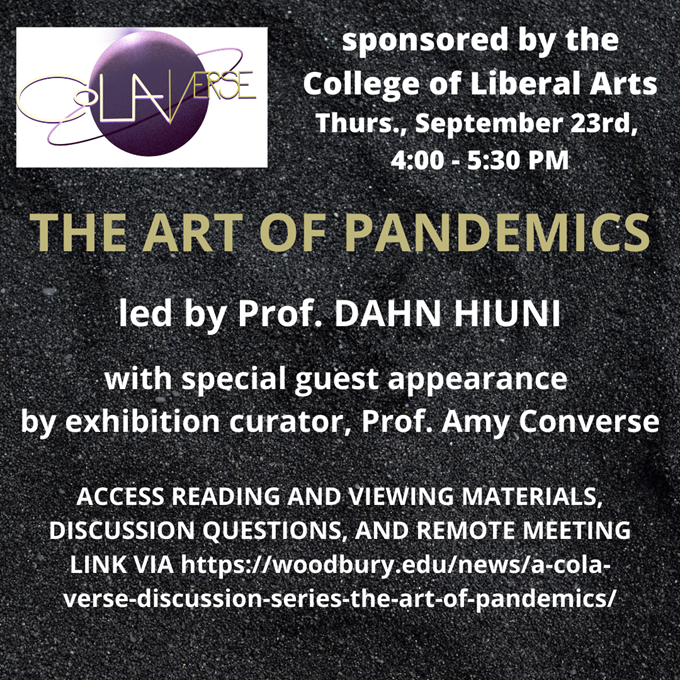
Our CoLA-Verse event this week is moderated by Prof. Emily Bills, author of Wayne Thom: Photographing the Late Modern (The Monacelli Press, 2020), a key primer to late-twentieth century Modernism, this monograph devoted to Wayne Thom chronicles his photographic practice and the architectural and urban environment in which he worked. An innovative chronicler of the booming West Coast urbanism of the 1960s and 70s, Thom’s photographs of key projects by path-breaking architecture firms such as William Pereira & Associates, Edward Durell Stone, SOM, Gio Ponti, John Portman, I. M. Pei, and A. Quincy Jones helped establish the idea of cool architectural glamour of the era. Yet, these are buildings we love to hate for their “corporatist” look—office building chic and utilitarian aesthetics. Wayne Thom will join our own Emily Bills to discuss his work and this important era in architectural history.
Link to Resources and Question
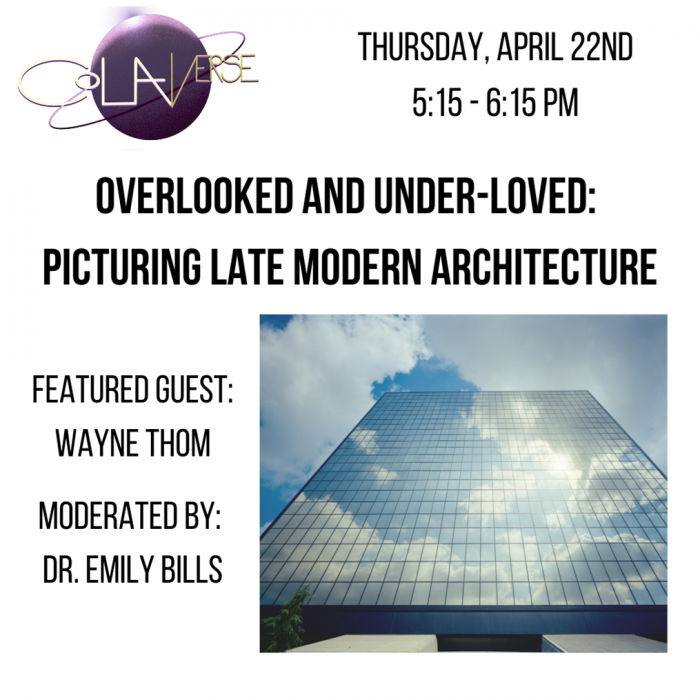
CoLA-Verse / B.I.G. Co-event STAY SANE, A Quarantine Dance Performance: Screening and Conversation with Creator AUSTYN RICH, moderated by Prof. Rossen Ventzislavov 3/25/21Please join the College of Liberal Arts and the Black Intellectual Groundworks this Thursday, March 25th, at 5 PM, for a collaborative event! We will screen a short film of a dance performance, STAY SANE, which was offered to a car-bound audience on the streets of downtown Los Angeles last spring and hear from the performance artist AUSTYN RICH. Link to more information and background materials can be found here.
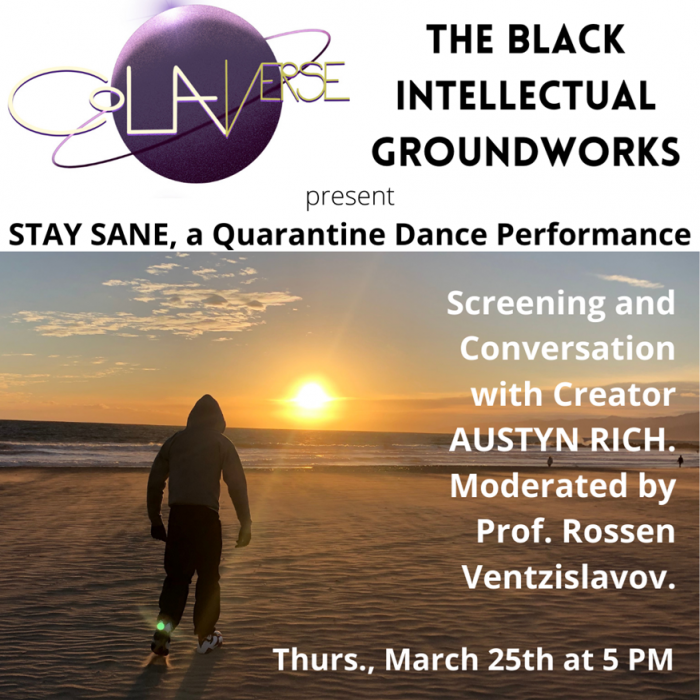
CoLA-Verse Ayanna Gaines and her “Racism and Pop Culture.” Honors Course.Find reading materials and discussion questions here.
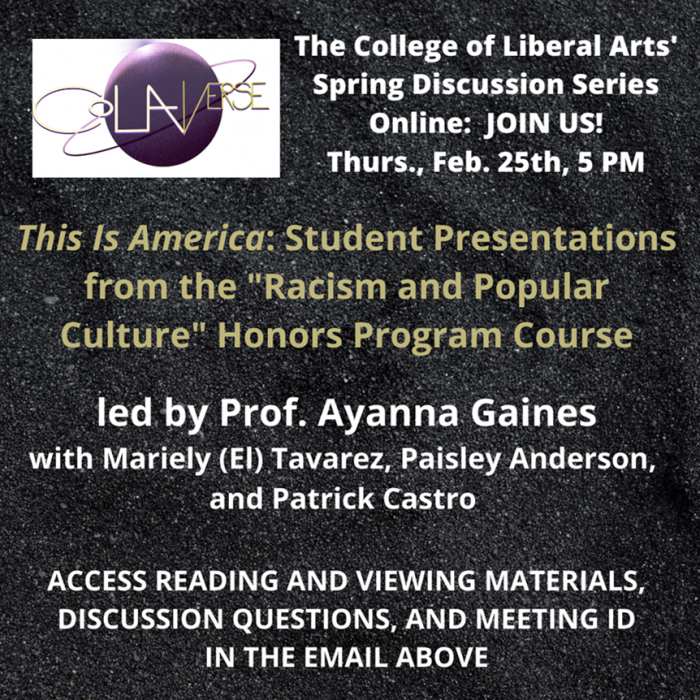
CoLA-Verse Hiram Sims and Josh Jones (Community Literature Initiative and the Sims Library of Poetry).
Find reading materials and discussion questions here.
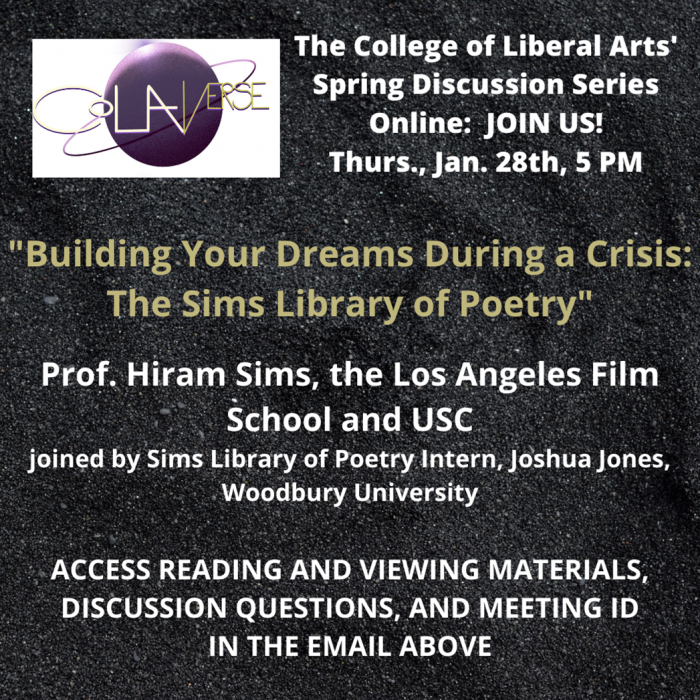
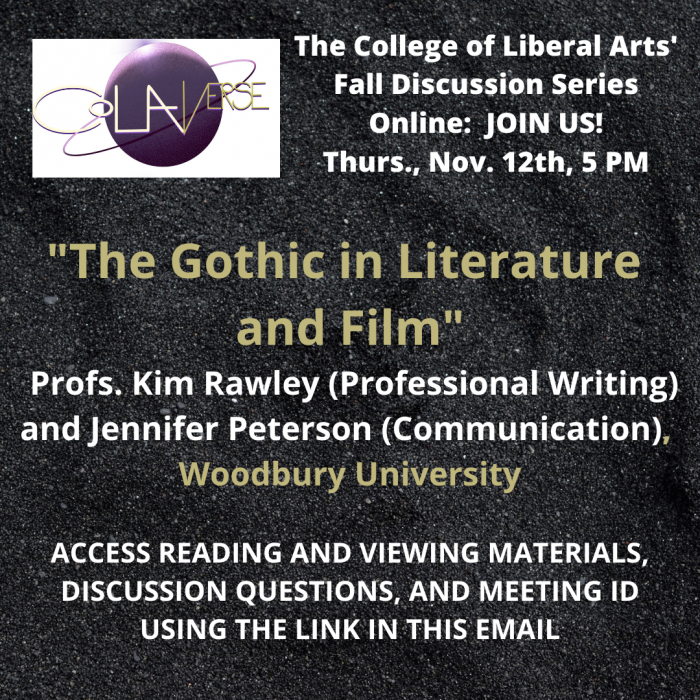
When most people think of Gothic literature, they imagine a spooky Victorian house, with hot and cold running ghosts, or a graveyard with ornate headstones. But Gothic was born 73 years before Queen Victoria’s coronation and had its roots in Enlightenment thinking and philosopher Edmund Burke’s A Philosophical Enquiry into the Origin of Our Ideas of the Sublime and Beautiful. The Gothic aesthetic has influenced many writers, painters, poets, and in modern life, our films, music, television, and video games.
Read more about this CoLAVerse event led by Kim Rawley and Jennifer Peterson.
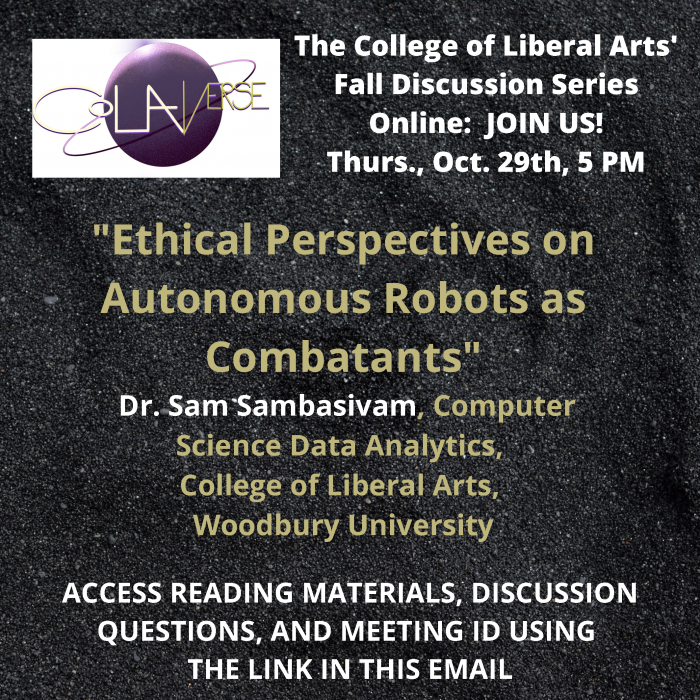
Computers are already approving financial transactions, controlling electrical supplies, and driving trains. Robot automobiles have been approved for use in California, and freeway lanes have already been designated for them. Soon, service robots will be taking care of the elderly in their homes, and military robots will have their own targeting and firing protocols. It is argued that even if full moral agency for machines is a long way off, it is already necessary to start building-in a kind of functional morality in which artificial moral agents have some basic ethical sensitivity. The quest to build machines that are capable of telling right from wrong has begun. Beyond the immediate challenge of programming an ethics into artificial intelligence, there are larger policy questions that loom. Should an international convention be convened to wrestle with the many applications of techno-ethics, with the ultimate goal of establishing international signatory conventions, particularly for military uses of artificial intelligence and robotics? How will the uses of artificial intelligence be overseen internationally in order to protect universal human rights?
Read more about this CoLAVerse event led by Dr. Sam Sambasivam.
The Black Lives Matter movement is an international effort, created out of a necessity to assert the radical belief that the lives of Black people matter. So, of what real value is a public monument to a Black person living in a nation where inanimate objects commemorating the institution of slavery have more legal protection than a child?” TK Smith’s “Towards a Monumental Black Body” originally appeared in ART PAPERS Spring 2020 and tackles the problems and potentials for the representations of Black people on the American landscape. Focusing on the concept of citizenship, Smith interrogates Confederate monuments and symbolisms within the built environment to reveal how monuments reflect social inequalities and structural racism.
Nationwide, BIPOC communities are dying from COVID-19 at a rate disproportionately higher than white people—for instance, 2.5 times higher for Black people than white people, and even greater for Hispanics (The COVID Racial Data Tracker, in alliance with the Boston University Center for Antiracist Research). The reasons between the disparity in COVID morbidity rates are not simply physiological—they engage with all sorts of social and institutional systems, including access to the health system, generational food insecurities, racism, and white supremacy. In this discussion, we’ll consider why the virus is affecting the BIPOC communities disproportionately and what can be done—long-term—to address the systemic inequities.
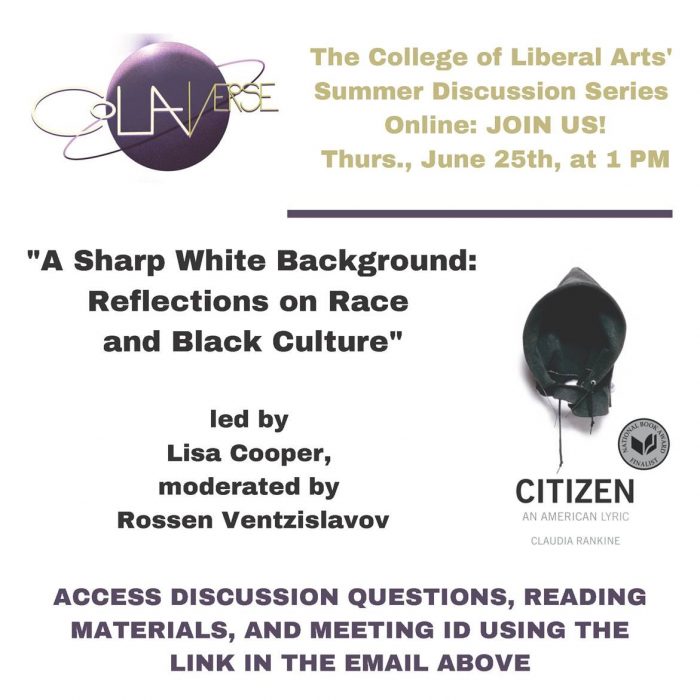
Read more about this CoLAVerse event led by Lisa Cooper and moderated by Rossen Ventzislavov.
